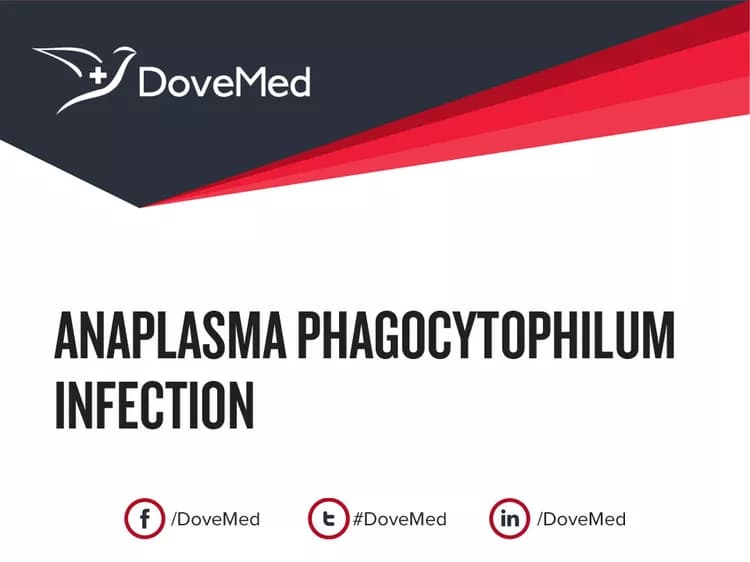The topic Anaplasma Phagocytophilum Infection you are seeking is a synonym, or alternative name, or is closely related to the medical condition Human Granulocytic Anaplasmosis.
Quick Summary:
- Human Granulocytic Anaplasmosis (HGA) is a rare, non-contagious, tick-borne bacterial infection caused by Anaplasma phagocytophilum, which targets neutrophils (a type of white blood cells)
- The exact global prevalence of Human Granulocytic Anaplasmosis is not known. It is known to occur in the US, in New England and North Central states. Generally, older adults and individuals with decreased immunity have a higher risk for HGA infection
- The primary vector for this infection is ticks, such as deer ticks and blacklegged ticks. In a majority of cases, the transmission of infection occurs when an infected tick attaches itself onto the skin and feeds on human blood. In this process, the bacteria get transmitted to a healthy host
- The bacteria enter the skin through the tick bite, and then move into the bloodstream resulting in an infection. The bacteria can also be transmitted through contaminated blood transfusions and from an infected mother to her unborn child
- When the bacteria enter the bloodstream, they specifically target the neutrophils, and reside inside these cells. This alters the neutrophils resulting in “degranulation” of these cells, compromising their ability to digest the invading microbes
- 1-2 weeks after infection, the symptoms of Human Granulocytic Anaplasmosis, such as fever, chills, muscle pain, vomiting, diarrhea, confusion, and a general feeling of ill-health, may be experienced. If left untreated, the infection can lead to complications such as respiratory problems, liver damage, kidney failure, and bleeding in the gastrointestinal tract
- The diagnosis of Human Granulocytic Anaplasmosis is made based on the presenting symptoms, physical examinations, history of outdoor activities, blood tests, etc. A confirmation of the infection is generally undertaken through a polymerase chain reaction test (PCR test, to identify the causative bacterium)
- A 10-14 day regimen of tetracycline class of antibiotics is the typical treatment modality for Human Granulocytic Anaplasmosis. The duration may be extended for severe cases, or, if HGA occurs with another infection such as Lyme disease
- Wearing long-sleeved, light-colored clothing while being outdoors, using insect repellants and removing ticks attached to the skin, as soon as they are detected, are some tips for preventing tick bites, and thus preventing Human Granulocytic Anaplasmosis infection
- The prognosis of Human Granulocytic Anaplasmosis is good in healthy individuals with prompt treatment. However, development of complications or co-existence of another infection, may prolong the recovery process
Please find comprehensive information on Human Granulocytic Anaplasmosis regarding definition, distribution, risk factors, causes, signs & symptoms, diagnosis, complications, treatment, prevention, prognosis, and additional useful information HERE.
Related Articles
Test Your Knowledge
Asked by users
Related Centers
Related Specialties
Related Physicians
Related Procedures
Related Resources
Join DoveHubs
and connect with fellow professionals


0 Comments
Please log in to post a comment.